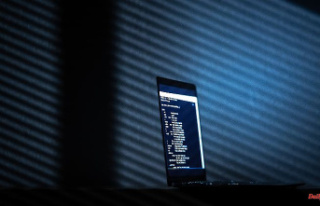Faster, more digital, smarter - South Korean companies are way ahead of us. The technology sector in particular wants to expand to Germany. In this country, the South Korean companies find the domestic market that they lack at home.
"Balli Balli" - that's a South Korean idiom and means something like "quick, quick". A way of life that also determines South Korean business. However, this zest for action is difficult to reconcile with German bureaucracy. South Korean companies are currently feeling this more and more. More and more medium-sized companies from the East Asian country are showing interest in Germany as a production location.
Things can't go fast enough for the South Koreans. "It shouldn't take longer than a week for the company to be in the commercial register. Anything beyond that makes the South Koreans nervous," reports Martin Bernhardt in the ntv podcast "Wirtschaft Welt
As a representative of "Germany's Saarland", the Saarland business development agency, the South Korea expert is often on the road in Korea and supports companies there in expanding to Germany. For a few months now, the lawyer has registered greater interest in Germany as a production location.
This can be observed particularly well in Saarland. Executives from 23 South Korean companies are currently on site to hold talks about expanding existing business relationships. These include manufacturers of chip production systems as well as robotics and biotechnology companies. The areas of cloud services and IT security are also represented. An important contact point for the delegation is the university campus in Saarbrücken. Because there is the world's only branch of the "Korea Institute of Science and Technology". The European branch of the renowned research institute supports Korean companies and researchers in expanding to Europe.
The Saarland Economic Development Agency is delighted with the visit. There are high hopes that the high potentials from South Korea will network with German companies. "On the campus of Saarland University we have several research institutes in areas that are very interesting for founders: artificial intelligence, IT, materials science and cybersecurity, for example," explains Bernhardt in the podcast.
Among other things, the delegation will visit the German Research Center for Artificial Intelligence and the Institute for New Materials, but also companies such as Innocise, which has developed a new gripping technology for robots based on the gecko foot. If there is new cooperation, the aim is to jointly develop new patents and open up global markets.
The economically strong Germany has a lot to offer from a Korean point of view: Access to the largest domestic market within the EU and Germany's central location are attractive. Since the South Korean market is comparatively small and isolated, commercial lawyer Martin Bernhardt is receiving increasing numbers of inquiries from medium-sized technology companies there.
The corona pandemic has shown how important a foothold in the middle of Europe can be for export-oriented companies. South Korean companies have recognized the importance of representative offices and subsidiaries in Europe, says Bernhardt, "in order to be active locally and to become independent of collapsing supply chains." Another plus point is the existing South Korean community in Germany with social and cultural networks. A recruitment agreement for miners and nurses in the 1960s and 70s attracted many people from South Korea to Germany. In general, the Federal Republic enjoys a high reputation among the people in South Korea.
After China, South Korea is the most important export market in Asia for German companies. Above all, cars, machines and chemical products are exported, classic consumer electronics such as refrigerators, but also various medicines find their way to Germany in large numbers.
The high-tech nation of South Korea is now one of the strongest trading powers in the world. The rise from a poor country to a trading power is "a really great success story," says Volker Treier, head of foreign trade at the German Chamber of Industry and Commerce in the podcast. This rapid progress is mainly due to the pragmatism in South Korea.
Treier believes that German companies could learn from the fast, smart and digital business relationships and thus further increase their own competitiveness. That would ultimately be a win-win situation for both sides. In addition, both states are democracies with the same value system. "We are looking for friends and the South Koreans are friends."












